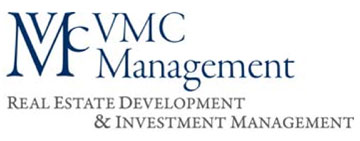It’s extremely important to analyze all charges, taxes and expenses with the same rigor as you would to raise revenue. Ultimately, one of the primary objectives of any property is to increase the cash flow without diminishing the service and ideally, increasing it. In most cases, your local municipality sewer tax bill is due for your property every quarter. You are in a great position if you have taken the necessary steps to escrow for that upcoming payment. If the term escrow is a foreign concept, please read our article. If the term escrow is new, it simply means planning ahead for that expense by setting money aside in prior periods to pay for it when it becomes due.
In most circumstances, the sewer tax bill is an afterthought – there is nothing you can do about it reducing it. In short you must pay it or risk the ownership of your property via a tax lien. Equally worse, some municipalities, will simply shut-off your water until the bill is paid in full! Why is this bill an afterthought for commercial or industrial accounts? Primarily, because the sewer tax bill is an outcome of water use charges incurred in a prior time period and “excess” water usage cannot be adjusted due to issues such as leaks. With the inability to seek charge adjustments you pay for this issue twice – payment to the water company and then again to the municipality.
The following Property Management steps should be integrated for each water bill and sewer tax bill of your property to help mitigate this double jeopardy:
Understand Your Municipality’s Sewer Billing Period and How the Sewer Tax Rate is Calculated
The objective here is quite simple. You want to understand what monthly water bill / usage charges are used to calculate your sewer tax bill and the time period examined. For example, in Plainfield NJ, the PMUA derives the upcoming sewer tax bill on an October 1st through September 30th calendar of the prior year. The October 2014 Sewer Tax bill will be based on the October 1, 2012 through September 30, 2013 while the October 2020 Sewer Tax bill would be based on the October 1, 2018 through September 30 2019 timeframe.
Review and Assess Sewer Billing Period and Future Billing Period Monthly Usage and Charges for Excess Usage
New Jersey American Water provides a graph with depicts a trailing 13-month period of water usage. Use this as a starting point to examine usage. Usage may be higher during winter months when compared to usage during the warmer months. However, make every every to pull a running three year usage by calling the water company. If usage is higher in the same period in the prior year, it may indicate a problem that needs to be investigated. Do not delay!
Find a Leak, Excess Usage, and You have a Residential Account? Contact Your Water Company with Date and Resolution Steps Taken to Have Credit Your Water Bill
Only residential customers have the ability to retroactively assess water charges and seek credit for leaks repaired. Be sure to have all of the information handy to maximize this savings. The acceptable reasons for the acceptable adjustments are not listed – you will have to speak with a representative for the relief criteria.
Find A Leak, Excess Usage, and You have a Commercial or Industrial Account? – Just Be Glad that You Caught the Issue!
New Jersey American Water does not provide leak adjustments for commercial or industrial accounts. Under certain circumstances, New Jersey American Water may provide cost adjustments for residential accounts. So, not only did you pay for the leak or excess usage once, but again as outlined on your sewer tax bill from your local municipality since it is based on prior usage which included the leak.
Know Your Rights!
Whenever in doubt don’t hesitate to call your water company, or get in touch with the New Jersey Board of Public Utilities. If we are missing anything, please don’t hesitate to let us know! If you need help we’re here as well.


